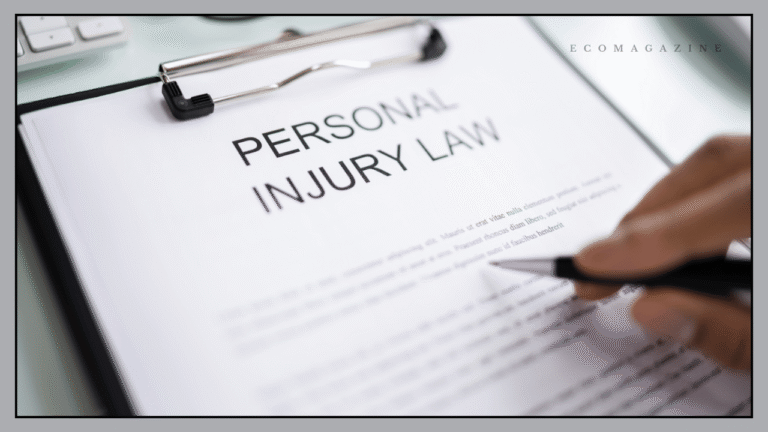That first lawyer visit? Yeah, it can be nerve-wracking. You’re probably still sore from the accident, maybe juggling medical appointments, and definitely stressed about bills. Here’s something that might ease your mind: the Insurance Research Council found that people who hire attorneys end up recovering 3.5 times more than those flying solo. The prep work you do before walking through that office door matters more than you think.
This guide breaks down exactly what you need to pull together, what questions deserve answers, and how to make your consultation count—whether you’re dealing with a car wreck, a wrongful death situation, spinal cord damage, or other catastrophic injuries.
Essential Documents to Gather Before Your Consultation
Think of documentation as building blocks. Each piece adds weight to your story and credibility to your claim. You want to show up organized, not scrambling through your phone for that one photo you took three weeks ago.
Medical Records and Documentation
These records create an undeniable paper trail connecting your injuries directly back to what happened. Round up your ER visit summaries, results from any scans or X-rays, notes from your physical therapist, and every single prescription slip. Don’t overlook billing statements from each doctor and those confusing insurance EOB forms either. This stuff proves how badly you were hurt and backs up the compensation numbers you’re seeking.
Accident Scene Evidence
Police reports give you official credibility—they document the who, what, when, and where from a neutral third party. Any photos or video clips you grabbed at the scene? Gold. Conditions change. Evidence vanishes. Got witness names and numbers? Even better. Dashcam recordings, weather data from that day, accident reconstruction paperwork. These details reveal factors you couldn’t control that contributed to what went wrong.
Williamsburg isn’t just colonial history and tourist crowds. Richmond Road gets congested. I-64 sees serious collisions. Mix local residents with college kids and tourists who don’t know the roads, and you’ve got a recipe for accidents with unique legal angles.
When working with a williamsburg personal injury attorney, you’re not just hiring someone for legal assistance; you’re gaining an ally who is dedicated to fighting for your rights. The questions you ask reveal whether this person truly gets your situation and has the chops to handle it.
Insurance Documentation
Money talks, and your insurance paperwork tells that story. Grab your policy documents, details about the other driver’s coverage, and every email or letter from insurance adjusters. Write down claim numbers. If they’ve denied anything, bring those letters. Know your uninsured motorist coverage limits.
And if you already gave a recorded statement to an adjuster before talking to an attorney (generally a bad move, by the way), get copies of what you said. Here’s the truth: proper preparation transforms anxiety into confidence. You’ll walk in ready instead of overwhelmed.
Questions to Ask Your Car Accident Lawyer
What’s your case actually worth? Ask for a realistic range, not pie-in-the-sky numbers. What makes your claim strong? What could hurt it? A qualified personal injury attorney will be able to outline how similar matters have been resolved in courts and help you identify every accountable party involved. Nail down your deadline; statute of limitations issues can torpedo even solid cases if you miss key dates.
Attorney Experience and Approach
How many cases like yours have they actually taken to resolution? What’s their track record look like? Some attorneys love settling; others thrive in court. Which approach fits their style, and what percentage of their caseload ends up before a judge? Medical expenses are the #1 driver of injury settlement amounts, so you’ll want to confirm they’ve got relationships with medical experts who can accurately project what your future care will cost.
Fee Structure and Communication
Most injury lawyers work on contingency, no-win, no-fee. But what’s the exact percentage they take? What about case costs like expert witnesses or filing fees? How often will they actually update you, and will you be working with them directly or handed off to paralegals? Setting these expectations early prevents frustration down the road.
Your timeline lays out the facts. Your story gives those facts emotional weight and human context.
Understanding State-Specific Personal Injury Laws
Different state plays by different rules than most states, and these quirks can torpedo your case if you’re not prepared. Better to know what you’re up against before your consultation.
Contributory Negligence Rule
This one’s brutal. Different states use pure contributory negligence, which means if you’re even 1% responsible for your accident, you get nothing. Zero. That’s why proving the other party’s complete fault becomes absolutely mission-critical. Your attorney needs every scrap of evidence showing you did nothing wrong, witness accounts, camera footage, expert analysis, everything.
Statute of Limitations
Wrongful death claims also have a two-year deadline from the date of death, not the accident date. Medical malpractice? Different rules, usually shorter windows. Government entities? Even tighter deadlines. Blow these deadlines and your case dies, no matter how strong it would’ve been.
Damage Caps and Limitations
For those who need help after a car crash, your car accident lawyer can pursue full compensation for your injuries since most personal injury claims don’t have damage caps (except medical malpractice, which is capped at $2.55 million in 2024). While the law imposes restrictions on punitive damages and limits your options with workers’ compensation, there are no such restrictions on typical auto accident claims handled by a car accident lawyer.
Beyond the legal maze, you need to understand the financial reality of what pursuing your claim actually involves.
Special Considerations for Complex Injury Cases
Some injuries don’t just heal up in a few months. Catastrophic cases demand specialized legal expertise and medical knowledge that goes way beyond your standard fender-bender claim. Your prep work should reflect that gravity.
Catastrophic Injury Case Preparation
A catastrophic injury attorney understands that life-altering injuries will require long-term planning and support. You’ll need life care plans projecting decades of medical needs, cost estimates for retrofitting your home or vehicle, and documentation of specialized equipment expenses. If your injury prevents you from working, vocational experts can quantify that lost earning capacity and support your financial claims.
Wrongful Death Claim Specific Preparation
Losing someone is devastating. Legal paperwork feels impossibly cold when you’re grieving. But your wrongful death attorney will need you to bring copies of death certificates, any available autopsy reports, and documentation of your legal relationship to your lost loved one. They also help organize estate documentation, find potential beneficiaries, and collect records of the deceased’s financial contributions, funeral expenses, and impact statements from the surviving family.
Spinal Cord Injury Documentation
Documenting long-term harm is critical; that’s why a spinal cord injury lawyer will want complete neurological records, all ASIA Impairment Scale documentation, and detailed accounts of your functional abilities before and after the accident. These records prove ongoing rehab requirements, justify adaptive equipment costs, and help calculate lifetime care expenses plus secondary health complications that often accompany spinal injuries.
Once you hire your attorney and tackle specialized case needs, your job isn’t done—you become an active partner in the process.
Your Questions Answered About Personal Injury Consultations
How long does a typical first consultation with a personal injury attorney last?
Plan on 30-60 minutes for straightforward situations. Complicated cases involving catastrophic injuries or wrongful death might need 90 minutes to two hours. Virtual meetings tend to run a bit shorter while covering the same essential ground about your situation.
Should I accept a settlement offer from the insurance company before consulting a lawyer?
Don’t do it. Seriously, never sign anything or accept offers before getting legal advice. Those initial numbers almost always lowball your claim’s real value, and once you accept, you’re locked in—no going back for more later. Most consultations cost you nothing, so why not get expert input first?
What happens if I share some responsibility for the accident? Should I still consult a personal injury attorney?
Absolutely. Even if you believe you may be partly responsible for the accident, consulting a personal injury attorney is essential. Contributory negligence law is strict, and what seems like partial fault may not be enough for the defense to deny your claim outright. An experienced attorney can investigate and help build defenses, as insurance companies sometimes wrongfully try to shift blame.


